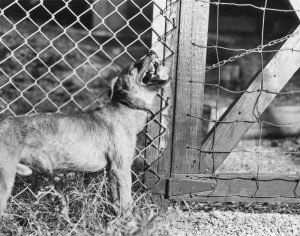NewsDesk @bactiman63
Last Saturday, the Ministry of Health held an opening ceremony with vaccination actions against canine rabies that will take place bilaterally in the city of Brasiléia, in Acre, on the border with the city of Cobija, in Bolivia. The location was chosen after a case of human rabies was registered in the Bolivian city. The event marks the beginning of vaccination activities in border municipalities, including Epitaciolândia, in Acre; Corumbá and Ladário, in Mato Grosso do Sul; Cáceres, in Mato Grosso; and Guajará-Mirim, in Rondônia.

Image/CDC
Specifically for this binational action, 70,000 doses of canine anti-rabies vaccine will be made available to Bolivia, if necessary, in addition to pre-exposure anti-rabies prophylaxis. In total, the forecast is to vaccinate about 100,000 dogs and cats in Brazilian municipalities and approximately 60,000 dogs and cats in Bolivian territory.
The campaign against rabies aims to achieve high vaccination coverage in domesticated domestic dogs, with the aim of forming a protection barrier against the rabies virus in the urban cycle, maintaining the interruption of transmission from dogs to humans. In the period from 2015 to 2023, so far, 32 cases of human rabies have been recorded, by different species of animals, most by bats. The last case of human rabies due to the canine variant occurred in 2015, in the municipality of Corumbá.
Subscribe to Outbreak News TV on YouTube
For 2023, approximately 28 million doses are expected to be distributed to all Brazilian states, considering routine vaccination, focus blocking and a campaign against rabies in dogs and cats. The Ministry of Health invested approximately R$ 35 million to acquire the canine vaccine.
- Alabama: Two human EEE cases reported in Baldwin County, One death
- Iran reports dozens of Crimean-Congo hemorrhagic fever cases: Local media
- Laos dengue cases top 23,000
- Lassa fever in Nigeria 2023: The latest data
- West Nile virus in Italy 2023
- Dengue fever: Martinique and Guadeloupe have entered the epidemic phase
- Diphtheria in Europe: ECDC Update 8/18/2023


One thought on “Brazil: Rabies vaccination campaign on Bolivia border”